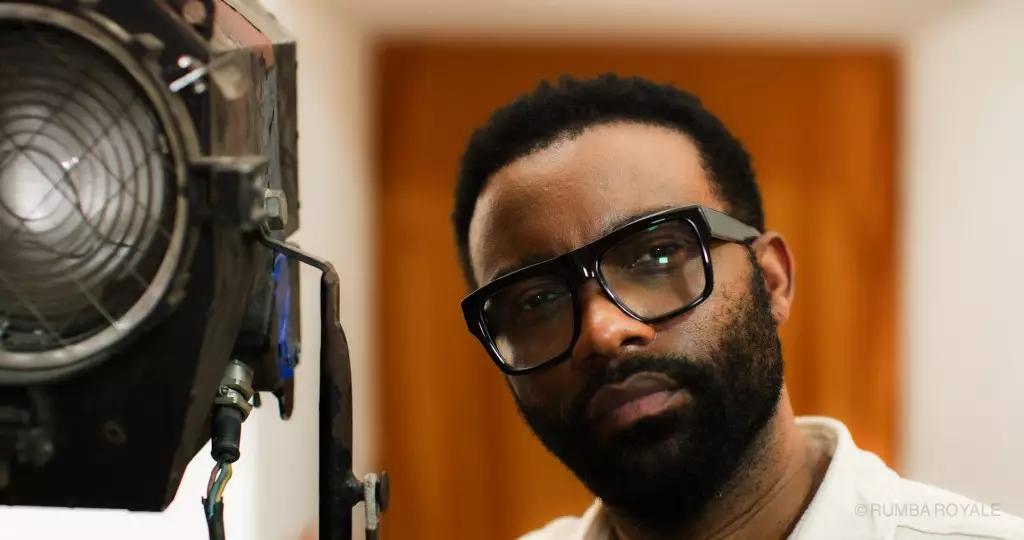Fally Ipupa, a monumental figure in the African music scene, recently ventured into the realm of acting with his debut role in “Rumba Royale.” The film, a historical thriller set against the backdrop of the Democratic Republic of Congo (DRC) on the cusp of its independence from Belgium in 1960, marks a significant milestone not merely for Ipupa but also for Congolese cinema. This shift from the music industry to acting reveals the versatility and ambition of this iconic artist known as the “Prince of Rumba.” As an individual who has amassed millions of listeners on various streaming platforms, Ipupa’s transition to acting is bound to draw attention, potentially paving the way for other musicians in Africa to explore similar opportunities.
“Rumba Royale” immerses audiences in the vibrant cultural landscape of 1959 Leopoldville—now Kinshasa—where locals and Europeans collide in a rhythmic nightlife permeated with the essence of Rumba music. Through this narrative, the film captures a moment in history. It showcases the growing unrest and desire for independence that characterized the era. Ipupa’s character, Danel, a bohemian photographer, embodies the creative spirit of the time, marrying the arts with the burgeoning political consciousness. This combination of personal and political narrative serves not only to entertain but also to educate audiences about a pivotal period in Congolese history, demonstrating the power of film as a vehicle for social commentary.
As an artist with a demanding touring schedule, Ipupa faced substantial challenges when committing to the film project. The fusion of rigorous music commitments and acting rehearsals required exceptional time management skills. This balancing act is particularly salient in today’s fast-paced entertainment industry, where multi-talented individuals must navigate various creative avenues. Ipupa’s assertion that “talent alone is not enough” underscores the importance of diligence—a lesson that transcends both music and film. His work ethic not only reflects his personal ambition but serves as an inspiration for aspiring artists juggling multiple passions.
The collaborative efforts behind “Rumba Royale” bring together a diverse group of talents, including co-star Melanie Bokata and U.S. cinematographer Ronny Law, under the direction of Hamed Mobasser and Congolese filmmaker Yohane Dean Lengol. The team’s goal was not merely to produce a film but to catalyze change within the DRC’s filmmaking landscape. Mobasser’s ambition to uplift Congolese cinema signifies a hopeful future for African filmmaking as a whole. He aims to demonstrate that quality cinema can emerge from the continent, which has often been overshadowed by Western narratives. The intention is clear: to inspire producers to invest in African stories that resonate not only regionally but also internationally.
The aspirations surrounding “Rumba Royale” extend well beyond its screening. The film aims to serve as a case study, illustrating the potential of African cinema to draw audiences, not just in the DRC, but across French-speaking regions such as Ivory Coast and Cameroon. With its blend of historical context and rich cultural portrayals, the movie’s success could set a precedent, encouraging more theatrical releases and international collaborations. The holistic strategy of showcasing local talent while appealing to global audiences is imperative if African cinema is to gain the recognition it deserves.
During a recent session at the AfroBerlin event, hosted amidst the Berlin Film Festival, Ipupa expressed an eagerness to continue exploring the acting medium. His sentiments reveal a curiosity and delight in storytelling that goes beyond monetary compensation. This intrinsic motivation signals a potential future where the realms of music and acting coalesce, enriching his artistic identity. As he embarks on this new journey, fans and critics alike will undoubtedly keep a close watch on Ipupa’s evolving narrative both on and off the screen.
Fally Ipupa’s foray into acting with “Rumba Royale” represents not only a significant personal milestone in his diverse career but also a broader opportunity for the Congolese film industry. Through hard work, artistic exploration, and a commitment to storytelling, he is set to inspire a new generation of African actors and filmmakers.

